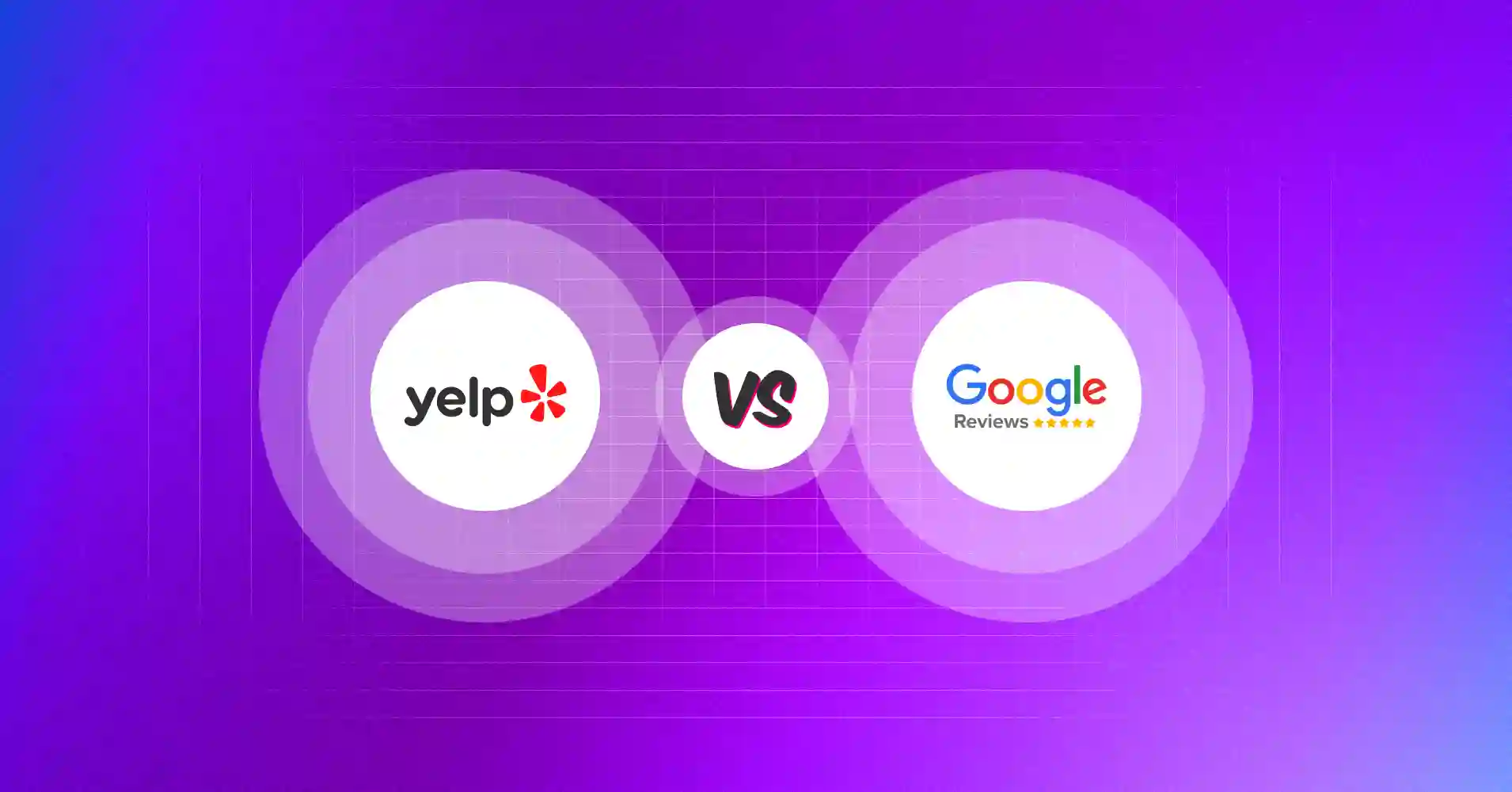
Yelp vs. Google Reviews: Ultimate Comparison for Business Owners
Every review, praise or critique shapes your story, but the stage matters. So, from Yelp vs. Google, which one will you bet on for holding the power to grow your business?
You could choose any one, but there’s a lot to consider for that. We understand how challenging it is to run a business and gain visibility. Online reviews can make a huge difference in your success, but deciding whether to focus on Yelp or Google feels like a high-stakes choice that could shape your future.
If you’re building your business or just starting, knowing where to invest your efforts isn’t just a smart approach; it’s essential. Should you grow your presence on Google Reviews, where every search could lead to you? Or should you build deeper trust through Yelp’s active community?
In this blog, we’ll reveal the fundamental differences and hidden opportunities and help you choose the platform that can turn your reputation into results.
Yelp reviews vs Google reviews: A Side-by-Side Comparison
Choosing between Google Reviews and Yelp can shape how customers discover and trust your business. Each platform has its own strengths, from visibility and volume to community and control.
Before breaking it down in detail, here’s a quick side-by-side comparison to help you decide which review platform aligns best with your goals and audience.
| Aspect | Yelp | |
|---|---|---|
| Size | Around 140 million monthly visitors globally | Over 1 billion active users worldwide use Google |
| Primary purpose | Designed specifically for detailed reviews, user recommendations, and local business exploration | Integrated with search and maps to quickly find businesses and leave reviews |
| Best for | Building a strong brand reputation in service-driven markets | Quick discovery, improving SEO and Google Maps visibility |
| Trust and credibility | Trusted for in-depth, authentic experiences, especially in the food and service industries | Seen as convenient but can sometimes lack depth or context |
| Review length and detail | Reviews are longer, more detailed, and often include photos | Reviews tend to be shorter and quicker, often with ratings, a short comment, and include photos |
| Ease of getting reviews | Harder; users need to visit Yelp separately and leave a review manually | Easier; customers are automatically encouraged to share reviews after their visit |
| Social networking | Strong community feel with user profiles, friends, and badges | Limited social interaction (mostly reviews only) |
Why do consumers choose Google or Yelp?
When consumers search for local businesses, it does matter where they search. Google and Yelp both play a significant role in determining how users find, trust, and decide to engage with a brand.
Here’s a comparison of why the user prefers one over the other, and how that affects your business visibility, reputation, and growth.
Broad reach and visibility
Starting with Google, customers prefer this one because of its massive reach. According to BrightLocal, Google is still the most favoured platform for local business reviews because 83% of the public uses it to find out information about nearby businesses. Being integrated with Google Maps and Search means that reviews become highly exposed, especially among large audiences that search for speedy business details.
As of early 2025, Semrush says Yelp.com receives approximately 133.68 million visits per month, with 87.1% of this traffic originating from the United States. While Yelp’s primary audience is U.S.-based, it also attracts visitors from other countries, including the United Kingdom, Australia, the Philippines, and Canada.
Businesses that aim for widespread exposure favour Google, while Yelp suits targeted, local engagement.
SEO and local search benefits
Google reviews have a huge impact on a business’s local SEO ranking. A higher volume of positive Google reviews boosts local map packs and organic search results.
Yelp reviews show up in search results but aren’t very SEO-friendly since Yelp cares more about inner discovery than external search. For the business that depends on SEO, Google is the first choice.
Consumer trust and behaviour
Trust is crucial in online review. Google or Yelp, they both deserve it in their own ways. Google, benefits from scale and convenience. Because reviews appear right in the search results and on Google Maps, users tend to check instinctively. While they may be shorter, the volume and visibility of Google Reviews establish trust quickly and broadly, especially among new or undecided customers.
On the other hand, Yelp reviewers spend a lot more time writing reviews with detailed information, star ratings, photos, and lengthy experiences. Yelp is therefore a favorite among those who look for well-considered, thorough views.
Impact on sales and order value
Reviews not just influence decisions but also directly impact how much money people will spend. Google and Yelp reviews can generate sales, but they do it in slightly different ways.
Google reaches more people and drives search and Maps visibility, usually influencing more volume of traffic and quicker decisions. It’s good at bringing in shoppers, comparing lots or searching on the go.
Yelp, on the other hand, creates more thoughtful conversions. Its longer, more explanatory reviews, especially in categories like restaurants, health and wellness, or local businesses, yield more valuable insights worth paying a premium for. Customers feel more comfortable spending more money when reading real experiences in context.
Ease of getting reviews
As a business owner, how easy is it to get customers to leave reviews on Google or Yelp? Well, collecting and managing reviews on Google is often a straightforward process. If your business is listed on Google, customers can easily leave reviews via Search or Maps, where you don’t need any extra setup.
Google Business Profile offers a centralized dashboard where you can respond to reviews, view insights, and share your review link to encourage feedback. This simplicity drives more reviews, boosting visibility.
Yelp’s free dashboard offers analytics, but its strict policies limit direct solicitation, and customers need accounts, which can reduce review volume.
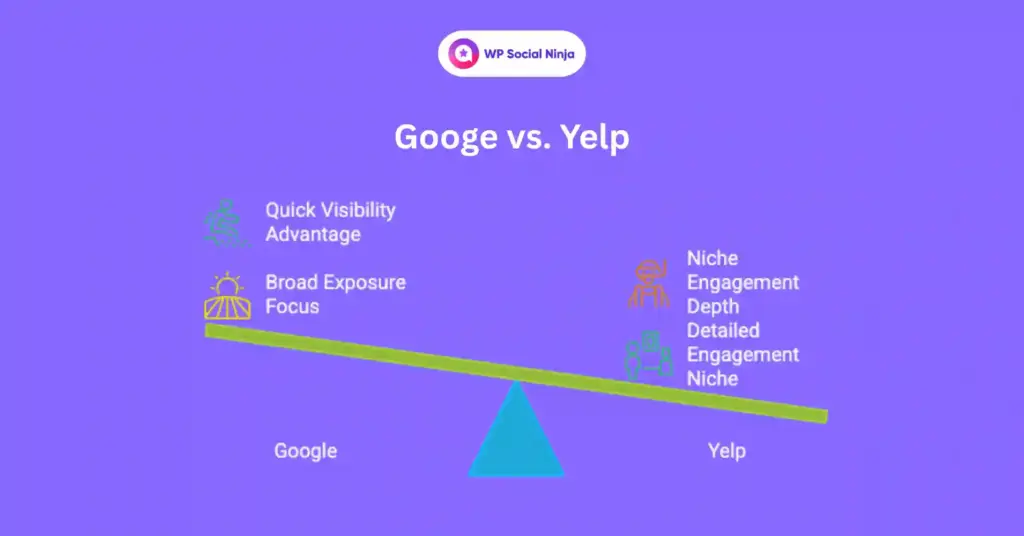
Nevertheless, choosing between them often depends on how comfortable you are with the platform’s tools, and how easily your customers can engage without friction.
Advertising costs and ROI: Yelp Ads vs. Google Ads
When choosing the right review platform for your business, one of the biggest deciding factors is how much you’re spending, and what you’re getting in return. No business owner wants to pour money into advertising that doesn’t pay off.
So let’s see how advertising works on both platforms, how they’re priced, and what kind of return on investment (ROI) you can expect.
Google ads
Google Ads runs on a pay-per-click (PPC) model, that is, you only pay for a click on an ad. You can set your daily or monthly budget and can change it at any time depending on performance. It is also very flexible, which is very helpful for small companies as they can test and scale campaigns gradually.
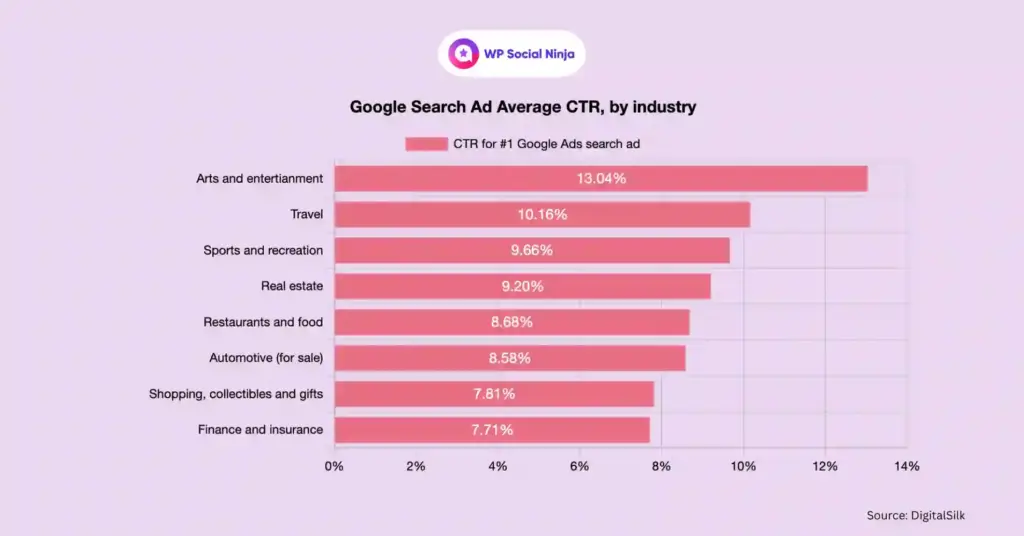
According to Digital Silk, the average cost-per-click (CPC) in the U.S. is $4.66, but high-competition sectors like legal services can hit $8.94, while arts and entertainment average $1.72. Businesses typically spend $1,000–$10,000 monthly, with small businesses often starting at $500–$2,000. Google’s bidding system lets you set daily budgets and adjust bids to ensure your control over spending.
Yelp ads
Yelp Ads, also PPC-based, focus on local businesses, targeting Yelp’s 51% purchase within a day to drive high-intent leads (according to Agency Analytics). Yelp Ads are primarily shown to users searching in your category and area, and your business appears in sponsored results and on competitors’ listings.
The ad model is still PPC, but the cost per click (CPC) is often higher than Google’s. Yelp works best for industries where trust and detailed customer experiences are crucial, such as spas, home services, or dental clinics. However, ROI is unpredictable.
For example, one small restaurant owner shared in a Reddit thread that Yelp’s ad spend of $350 per month brought in less than 5 trackable customers. That’s a costly gamble for local businesses without a solid review base or niche audience.
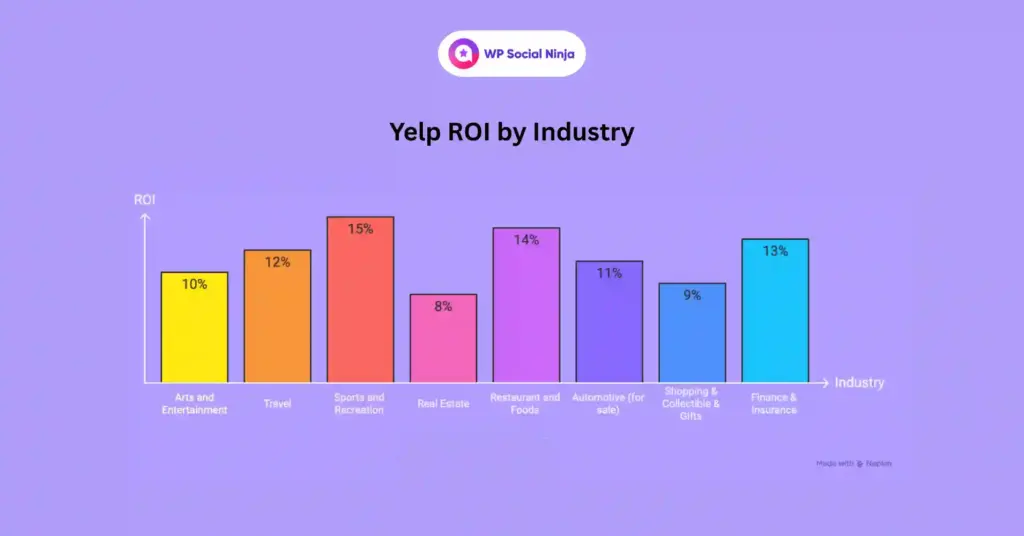
Takeaway: Unlike Google, Yelp doesn’t allow you to control keywords or target specific demographics in detail. It also typically locks you into longer-term ad contracts unless specially negotiated, which can be restrictive if you’re working with a limited budget or unsure of consistent performance.
Industry-specific review strategies
Need a strategy to make your business shine on Yelp or Google reviews? Understanding how Google and Yelp work in different industries can help you make the best choice for your business.
Restaurants
- Google: For restaurants, Google’s greatest strength is visibility. Listing on Google Maps and appearing in local search results can drive traffic and increase online reservations. And Google’s SEO power can place your restaurant reviews on Google at the top when someone searches for food.
- Yelp: Known for its detailed reviews, Yelp is ideal for restaurants where food quality and ambience are top priorities. Customers often share photos, which helps build a visual story of your offerings. Yelp is particularly trusted in the food and hospitality industry, making it a go-to for dining recommendations.
Retail
- Google: Google’s strength lies in product discovery and its search engine optimisation (SEO) capabilities. Retail businesses benefit from being listed in search results, where potential customers can easily find their products. Google Reviews also play a significant role in product trust, influencing decisions based on the experiences of past buyers.
- Yelp: For boutiques and specialty shops, Yelp offers a fantastic opportunity for more visibility. Yelp helps develop a community around your shop by bringing customer input into the foreground and offering an arena for sincere referrals. It’s ideal for attracting customers who value personalized shopping.
Healthcare
- Google: Google Reviews are crucial in healthcare for SEO and visibility. When patients search for local doctors, clinics, or medical services, having positive Google Reviews helps build credibility and trust. Appearing in local searches makes it easier for patients to find and choose your services.
- Yelp: Yelp plays a key role in building trust in the healthcare sector. Detailed patient testimonials help reinforce your reputation and give potential patients a sense of security. While Yelp may not be as SEO-driven as Google, it is a trusted platform for individuals researching healthcare providers and making decisions based on others’ experiences.
How to maintain and tackle fake reviews
No matter how great your service is, fake reviews will find their way in. A random 1-star with no context? A suspiciously glowing 5-star that sounds like it came from a bot? It happens.
However, it’s all about how you handle this. In this section, you’ll discover how Google and Yelp are fighting fake reviews in 2026, and what smart steps you can take to defend your reputation before it takes a hit.
Google is making more aggressive efforts to identify and remove fake reviews. The company employs sophisticated machine learning algorithms and human reviews to identify suspicious content. Some of the important steps it takes are:
- Users who persistently post false or misleading reviews are not allowed to post any more reviews.
- Businesses found to be falsifying reviews can have new reviews suspended, existing reviews removed, and warning notices posted on their profiles.
- Google has incorporated features that make it convenient for users to flag suspicious reviews, such as reviews that provide incentives for good reviews.
Business owners can flag inappropriate reviews on their Google Business Profile, but the removal process may take time, and not all flagged reviews are guaranteed to be removed.
Yelp
Yelp also has very strict rules to avoid spamming reviews. Its bot system decides which reviews appear unequal or unreliable and routes them to a “Not Recommended” section, which is not appreciably visible to most viewers.
- Yelp shows notifications on business pages when a company is discovered trying to pose as fake reviews, so that consumers can make well-informed decisions.
- It does not allow businesses to ask for reviews, maintaining the original feedback that you receive.
- Yelp uses artificial intelligence to detect and mark suspicious reviews or activities so things stay honest.
Yelp’s strict filtering maintains review integrity but may indirectly hide genuine reviews.
Want to turn your Yelp reviews into social proof on your website? Use a review plugin to showcase them easily and build stronger credibility.
Tips to manage and prevent fake reviews
As a business owner, all reviews matter, either positive or negative. To ensure your reputation and confirm you’re doing reviews the right way, here are the most crucial strategies you should always have on your list for managing and avoiding fake reviews:
Regular checking: Check your business listings on review websites like Google and Yelp. Be on the lookout for suspicious or fake reviews regularly so you can address them quickly. The earlier you detect them, the less damage they will do.
Respond in a professional manner: No matter if a review is positive or negative, always respond in a friendly, professional tone. It shows potential customers that you value their opinions and increases confidence.
Train your staff: Make sure that your staff realizes how much is worth having genuine, real reviews. They must also be informed of platform policies so they don’t accidentally violate rules.
Use a review management plugin: Plugins like WP Social Ninja make it easier for you to manage your reviews. You can show reviews on your WordPress page, organize reviews by star or specific hashtags, and identify pluses without all the hassle. This ensures customers are seeing just the pluses.
Encourage people to provide real feedback: You can get positive reviews by delivering incredible service. In case the clients are happy, ask them to post a review. Real feedback boosts your business’s reputation and enhances your reputation online. Make review collection frictionless. Check out our guide to generating review links.
Set your review strategy: Yelp or Google for reviews, or both?
Google Reviews and Yelp aren’t competing, the two play distinct roles in your business development.
Think of Google as the fast find and high-exposure search location. It’s most often the first impression when someone searches for you. Yelp, on the other hand, plays the long game. It attracts consumers who are already comparison shopping and happy to spend more time reading extended reviews before they make a choice.
When picking the right platform, it’s important to consider your business type and customer base. For example, a restaurant or local service provider may benefit from Yelp’s engaged audience, while a broader business with a global reach may find more value in Google’s extensive exposure.
But you are not necessarily deciding between them. By strategically leveraging both platforms, you can maximize your exposure, build credibility, and make sales.
Make sure your actions match your goals, and use the strengths of both Yelp and Google to get the best results for your business.
FAQ
How do I embed Google reviews on my website?
To embed Google reviews on your WordPress website in the easiest way, use WP Social Ninja and follow the steps:
- Download and activate the plugin
- Go to Social Reviews section and choose Google Business Profile
- Configure your account
- Customize your reviews template & Save it
- Copy the shortcode & paste it on the page you want to showcase reviews
For more details, learn more details on how to add Google reviews to your website.
Can I embed Yelp reviews if I don’t have technical knowledge?
Yes! You can easily embed Yelp reviews using user-friendly tools like WP Social Ninja, which allows you to display reviews without any coding skills required. It simplifies the process and helps you easily showcase your customer feedback.
Which platform helps small businesses grow faster in 2026?
Google is highly beneficial for small businesses on the basis of its powerful SEO capabilities and search engine ranking. Yelp can be utilized for trust building, as well. But, using both resources strategically together will elevate your business to an entirely new level.

Subscribe To Get
Weekly Email Newsletter
Connect, Customize, and Display Social Feeds, Reviews, and Chat widgets






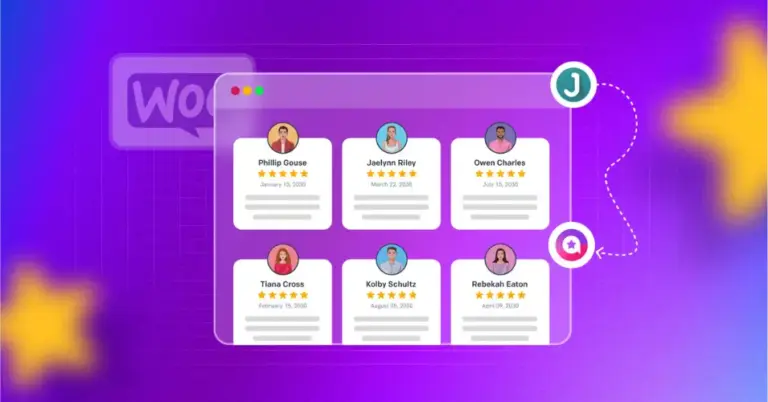
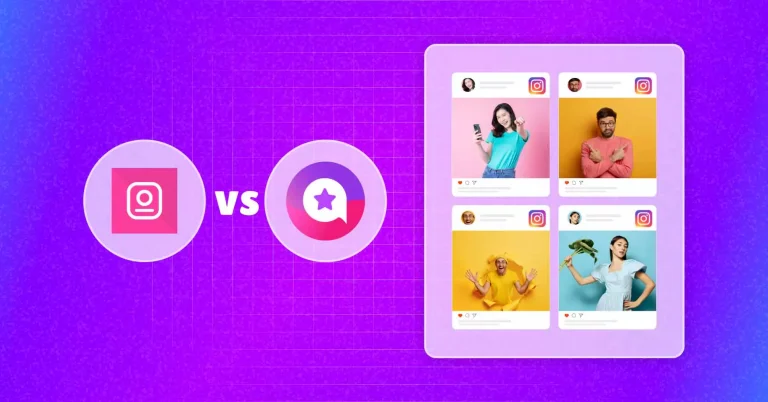
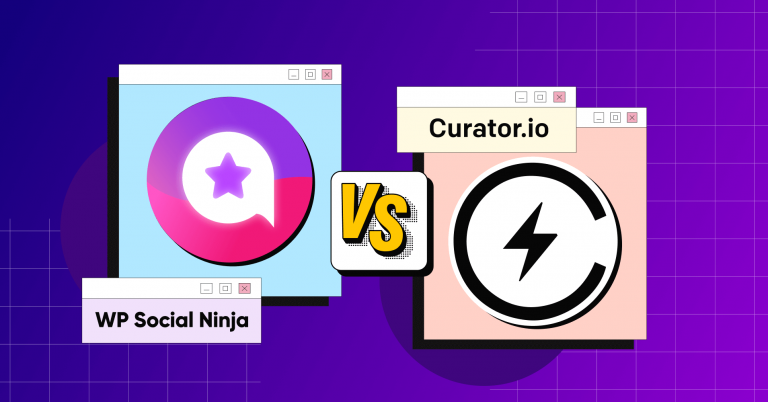









Leave a Reply